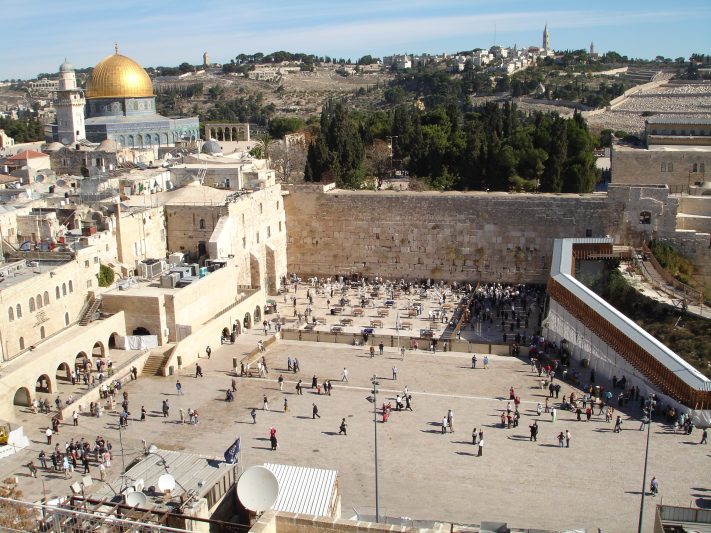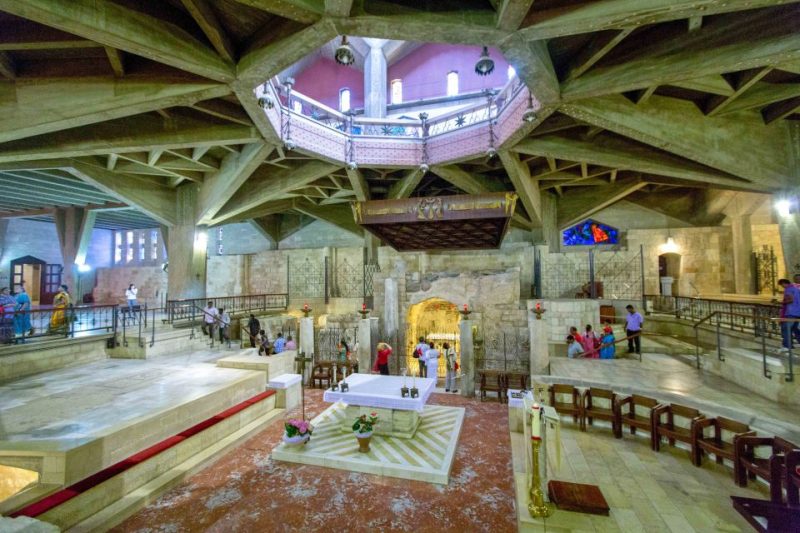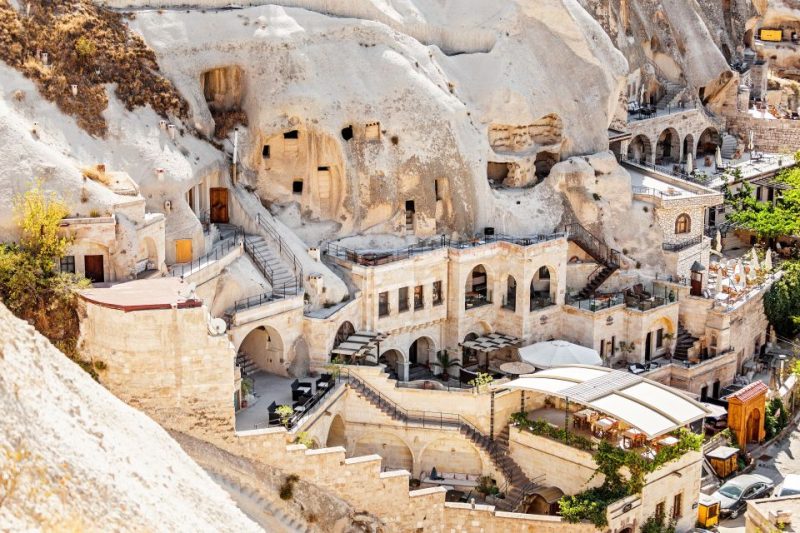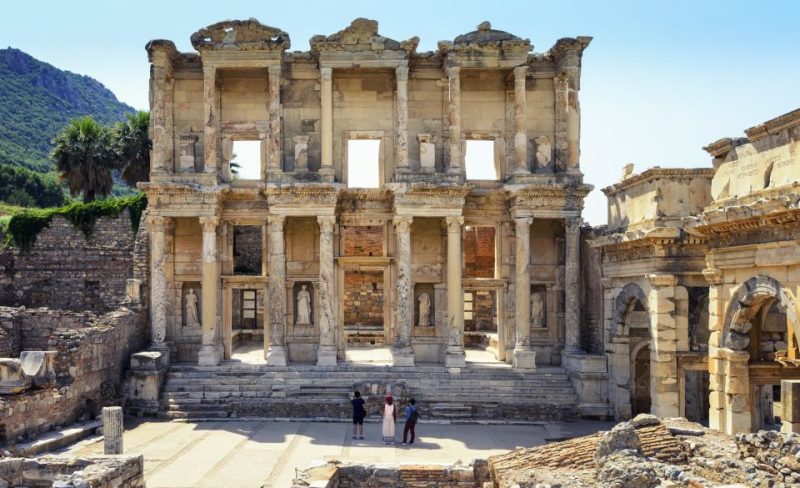Top Biblical Places to Visit: A Journey Through Sacred History
In this article, we will explore some of the most iconic biblical places to visit. Whether you’re a devout believer or simply fascinated by history, these destinations promise an enriching experience that transcends time and space.

Imagine walking through the same streets where Jesus once tread, or standing on the very ground where Moses received the Ten Commandments. For travelers with a penchant for history and spirituality, visiting biblical places offers a unique opportunity to connect with ancient stories that have shaped civilizations. According to a 2019 survey by the World Tourism Organization, religious tourism accounts for approximately 300 million trips annually, highlighting its significance in global travel.
Spiritual and Cultural Significance
The spiritual and cultural importance of biblical places transcends geographical boundaries. These sites are revered by billions of people worldwide, representing sacred ground where faith and tradition intersect. They serve as beacons of inspiration, drawing pilgrims and tourists seeking solace, enlightenment, and a connection to their spiritual roots.
Growing Interest in Religious Tourism
In recent years, there has been a noticeable surge in the interest surrounding religious tourism and pilgrimages. People from diverse backgrounds are increasingly drawn to biblical sites not only for their religious significance but also for the rich historical and cultural experiences they offer. This growing trend reflects a universal yearning to explore the origins of faith and delve into the stories that have shaped humanity.
Pilgrimage to the Past: Exploring the Most Revered Biblical Places to Visit
The Holy Land: Israel and Palestine
Jerusalem: The Heart of Biblical History
Jerusalem, a city revered by three major religions, holds unparalleled significance in the biblical narrative. The Western Wall stands as a remnant of the Second Temple, symbolizing Jewish resilience and devotion. The Church of the Holy Sepulchre encapsulates the crucifixion and resurrection of Jesus for Christians, while the Dome of the Rock, with its iconic golden dome, marks the spot where Muslims believe Muhammad ascended to heaven.
Other Notable Sites
The Western Wall: Also known as the Wailing Wall, this is one of Judaism’s most sacred sites.
The Church of the Holy Sepulchre: Believed to be the site of Jesus’ crucifixion and resurrection.
The Dome of the Rock: An Islamic shrine that holds significance for all Abrahamic religions.
Bethlehem, The Birthplace of Jesus

Bethlehem, the humble town where Jesus was born, remains a focal point for Christian pilgrims seeking to connect with the roots of their faith. The Church of the Nativity, built over the traditional site of Christ’s birth, is a testament to the enduring impact of this small yet profoundly significant location.
Nazareth: Where Jesus Grew Up

Nazareth is another must-visit destination. The Basilica of the Annunciation marks the spot where Angel Gabriel is said to have appeared to Mary, announcing she would give birth to Jesus.
Ancient Wonders: Egypt and Jordan
Biblical Connections to Egypt
Egypt holds a significant place in biblical history, particularly with regards to the story of the Exodus. This pivotal event in the Bible recounts the liberation of the Israelites from slavery under the leadership of Moses. The plagues, the parting of the Red Sea, and the journey through the wilderness are all integral parts of this narrative that took place in the land of Egypt.
Importance of Mount Sinai in the Exodus Story
Mount Sinai, also known as Mount Horeb, is a renowned Biblical landmark that holds great significance in the Exodus story. It is the place where Moses received the Ten Commandments from God, making it a symbol of divine revelation. Situated in the Sinai Peninsula, this sacred mountain continues to be a pilgrimage site for those in search of spiritual enlightenment.

Jordan: Crossroads of History
The Ancient City of Petra and Its Biblical References
Petra, the ancient city carved into rose-red cliffs in Jordan, is not only a marvel of architecture but also holds biblical significance. While not explicitly mentioned in the Bible, Petra’s proximity to the lands of the Old Testament makes it a location of interest for biblical scholars and enthusiasts alike.
Exploring these ancient wonders in Egypt and Jordan provides a tangible connection to the stories and events described in the Bible, allowing visitors to immerse themselves in the rich tapestry of history and faith.
The Jordan River: Baptism Site of Jesus
The Jordan River holds special significance as the site where John baptized Jesus. Today, visitors can partake in baptismal ceremonies at Yardenit or Al-Maghtas.
The Cradle of Christianity: Turkey and Greece
Exploring Biblical Sites in Turkey
Turkey, known for its rich biblical history, is home to significant sites that played a crucial role in the early spread of Christianity. Ephesus, an ancient city where St. Paul preached and wrote his letters to the Ephesians, stands as a testament to the early Christian community. The Seven Churches of Revelation, mentioned in the Book of Revelation, offer a glimpse into the challenges faced by the early Christian congregations in Asia Minor.

Antioch: Where Followers Were First Called Christians
Antioch (modern-day Antakya) is significant for being one of Christianity’s earliest centers. It was here that followers were first called Christians.
The Significance of Cappadocia
Cappadocia, with its unique rock formations and underground cities, provides a backdrop to understand the perseverance of early Christians during times of persecution. The region’s cave churches and frescoes depict scenes from the Bible, preserving the stories of faith against all odds.

Ephesus: An Early Christian Hub
Ephesus was one of the seven churches mentioned in the Book of Revelation. The ruins here include:
The Temple of Artemis: One of the Seven Wonders of the Ancient World.
The House of Virgin Mary: Believed by some to be her final resting place.

Unveiling the Importance of Greece
Greece, with its blend of ancient history and Christian heritage, holds great significance in the narrative of early Christianity. Corinth, a bustling city mentioned in the New Testament, was visited by the Apostle Paul, who wrote two letters to the Corinthians, shaping the theology of the early church.
Athens: A Hub of Philosophical and Religious Dialogue
Athens, renowned for its philosophical debates and religious diversity, provided a platform for early Christian thinkers to engage with different worldviews. The Areopagus, where St. Paul delivered his famous speech on the “Unknown God,” symbolizes the intersection of faith and culture.
Patmos: The Island of Revelations
Patmos, a small Greek island, is where the Apostle John received the visions recorded in the Book of Revelation. The Cave of the Apocalypse, where John is believed to have written the book, offers a sacred space for reflection and contemplation.
Italy: Apostolic Journeys
Rome: The Heart of Early Christianity
Rome holds immense importance for its role in early Christianity:

The Vatican: Home to St. Peter’s Basilica and numerous relics.
Catacombs: Underground burial sites used by early Christians.
Practical Tips for Biblical Pilgrimages
Planning and Preparation
- Research the biblical sites you wish to visit and understand their significance in history and religion.
- Consider the best time to travel, taking into account religious holidays or events that may impact your experience.
- Ensure you have the necessary travel documents and make any required bookings well in advance.
Respecting Local Customs and Traditions
When embarking on a biblical pilgrimage, it is crucial to respect the local customs and traditions of the places you visit. This not only shows reverence for the sacred sites but also fosters a deeper connection with the local community.
Etiquette Tips:
- Dress modestly when visiting religious sites.
- Observe and follow any specific rituals or practices at the sites you visit.
- Be mindful of cultural norms regarding interactions with locals.
Finding Reputable Tour Operators and Guides
Choosing the right tour operator and guide can greatly enhance your biblical pilgrimage experience, providing valuable insights and ensuring smooth logistics throughout your journey.
Tips for Selecting Tour Operators:
- Read reviews and testimonials from previous travelers to gauge the quality of service.
- Verify the credentials and expertise of the tour operators in organizing religious tours.
- Inquire about the group size, itinerary details, and any additional services provided.
Final Thoughts on Biblical Places to Visit
Exploring these biblical places offers more than just a travel experience; it provides a spiritual journey through time. From Jerusalem’s sacred streets to Rome’s ancient catacombs, each destination tells a story that has shaped human history and faith.
Whether you’re planning your next pilgrimage or simply curious about these historic sites, visiting these biblical places promises an unforgettable adventure filled with awe and reverence.




Be the first to comment